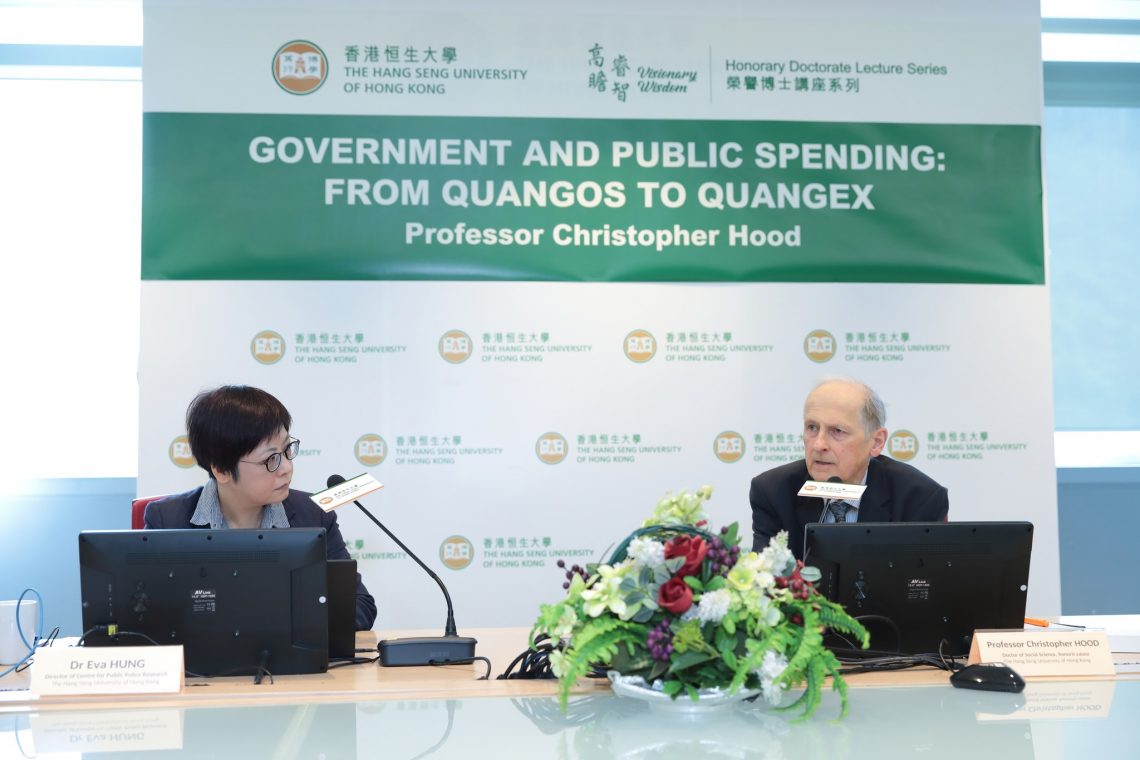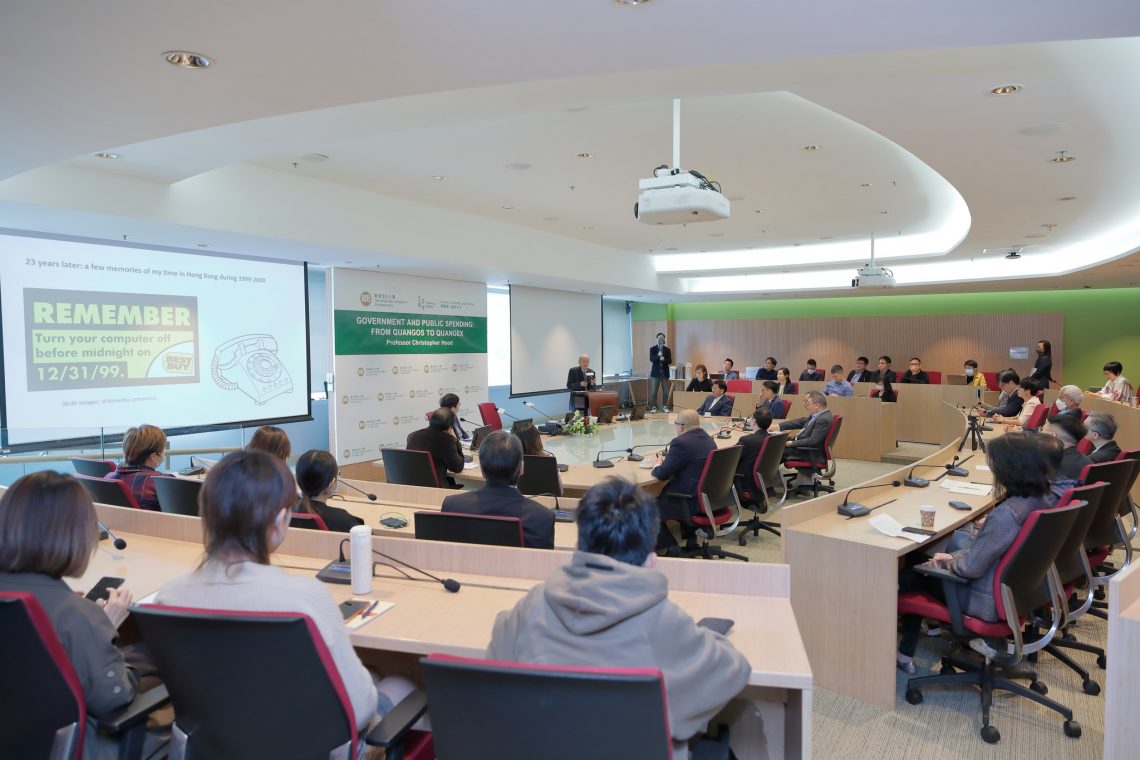On 17 March 2023, The Hang Seng University of Hong Kong (HSUHK) kicked-off its inaugural ‘Visionary Wisdom – HSUHK Honorary Doctorate Lecture Series’. The lecture series has been initiated for a noble purpose, that is, to learn from distinguished Honorary Doctorates and be cognisant of their visionary wisdom into what we can expect in the future.
The first lecture in the series, was delivered by Professor Christopher Hood, one of HSUHK’s 2023 Honorary Doctorate recipients in Social Science, and a world-renowned scholar in the fields of public policy, administration, and politics.
Over two hundred guests attended the inaugural lecture, both virtually and in-person, all who raised insightful questions and engaged with Professor Hood to gain as much insight and knowledge as possible from his vast experience and his forecast into the future evolvement and classifications of government and public spending.
Not only does public policy plays a crucial role in forming the covenant and principles of a society, but it is also one of the focuses of HSUHK. HSUHK offers a bachelor’s degree programme in Philosophy, Politics and Economics (PPE) and a master’s degree programme in Public Policy and Risk Governance. In 2021, HSUHK also established the Centre for Public Policy Research, which provides a platform for academic researchers and policy practitioners from diverse backgrounds to exchange ideas and carry out research projects relating to public policy.
As the world recovers from the global pandemic, it is facing global inflation, political turmoil from an ongoing war in eastern Europe, as well as monetary tightening. Concurrently, lack of adequate control over government expenditure remains a problem for many countries.
Keeping this in mind, Professor Hood was invited to share his knowledge and provide insight on what we can expect from modern governments. He discussed his views through a vehemently debated topic focused on public spending control to add further value and learning to the University as we collectively build the bridge between us and the wider community in the understanding and deliberation of policy issues.
Professor Hood’s talk on the topic “Government and Public Spending: From Quangos to Quangex”, moderated by Dr Eva Hung, Associate Professor of Department of Social Science of HSUHK, deeply resonated with audiences and helped them gain a better understanding on how quasi-non-government expenditure can be under control by operating with precise and explicit fiscal rules.
Speaking of his study of quasi-non-governmental organisations, one of the themes, from ‘Quangos to Quangex’, Professor Hood elaborated on the creation of the types of expenditure in government that enable governments to get around the explicit limits to debt and deficit, and that’s one of the themes that he has been working on in his recent work of public expenditure.
Professor Hood elaborated on the process the government called ‘created classifications and reclassifications’ on forms of spending from public to private financing by governments. He shared examples on how debt, in the sums of billions, was moved down to privately financed funding, enabled by the governments of wealthy countries to minimise public expenditures and debt limits.
In answering what role quangos and quangex play in the current geopolitical landscape as well as what the breaking point would be in the practice of quangex and how it should be further reviewed in Hong Kong and beyond, Professor Hood said “We need to know much more and further investigate quasi non-governmental organisations and how they are accountable” and “there’s less to gain in terms of fiscal rules from private financing by governments, therefore you don’t see it as much on the international financial stage”. He also said that “it’s a bit of a cat-and-mouse game between the treasury looking for ways to finance things that don’t count as public expenditure or public debt, and international standards which eventually do catch up with them” in explaining the limitations of quangex.
Professor Hood concluded the lecture with further elaboration on how different government organisations, spending departments and different sectors qualify, classify, and justify different types of spending in relation to their administration budgets and how these priorities have shifted in the last few decades, as new and innovative programmes continue to develop in this fast-paced world.


Related Posts
[HSUHK & IDAF] Food and Beverage Young Entrepreneurship Competition
The Inaugural HSUHK and Institution of Dining Art Foundation Limited “Food and Beverage Young Entrepreneurship Competition” Calls for Entries Today The Hang Seng University of…




